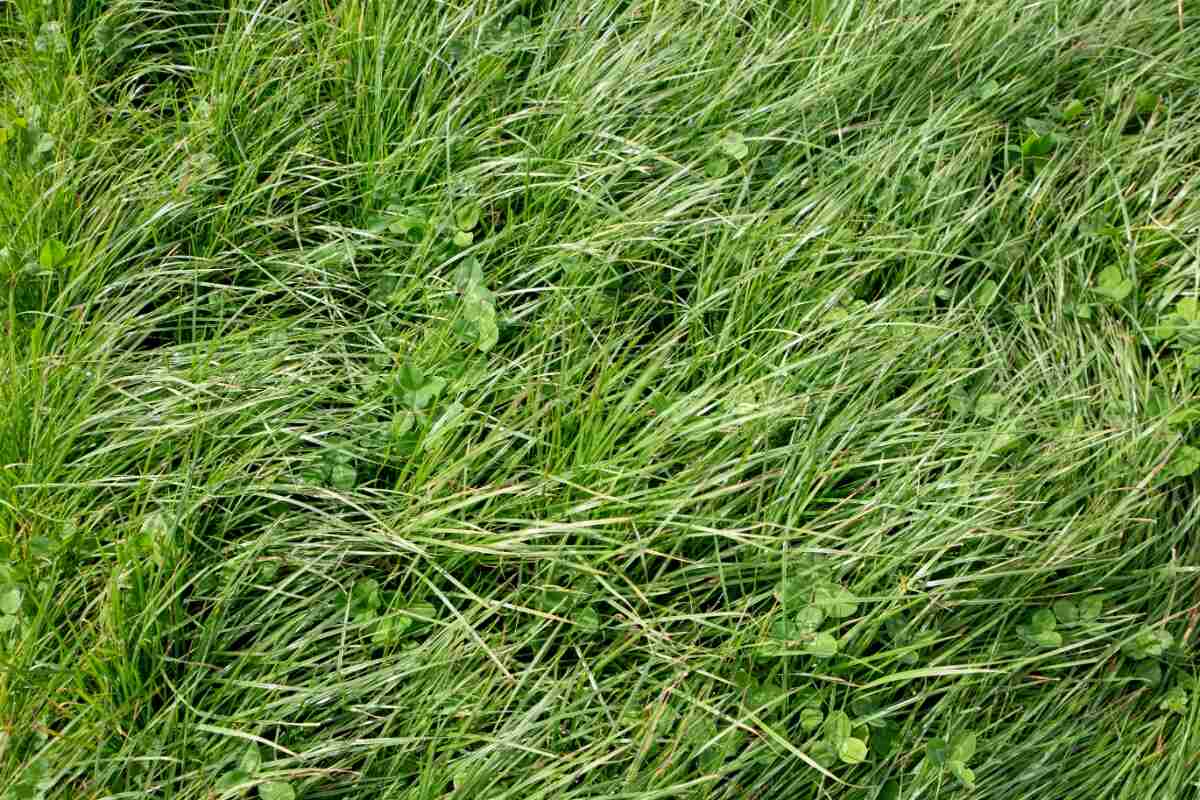
Clover is a mark of luck and a nitrogen-fixing powerhouse for your soil. However, for many, a uniform sea of grass is the ultimate goal, and clover may seem like an unwelcome intruder. If you want to get rid of clover but keep your grass intact, you’ve come to the right place. From hand-pulling to homemade treatments, we’ve got you covered.
Dive in with us as we explore techniques to deal with your clover problem, ensuring your grass remains as vibrant and full of life as ever.
How to Get Rid of Clover
1. Mow High
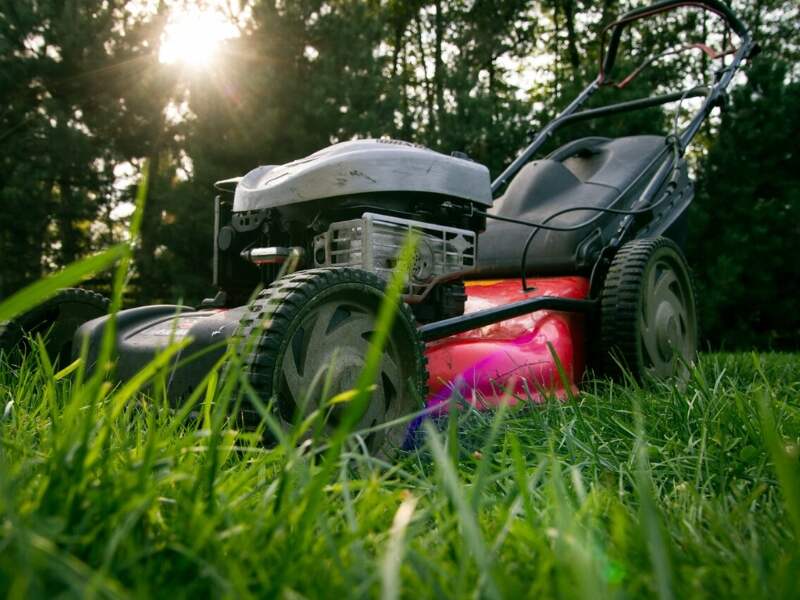
One of the best natural ways to discourage clover growth in your lawn is to adjust your mowing height. Clover is especially fond of establishing itself in shorter grass, usually mowed shorter than 3 inches.
By adjusting your lawn mower’s setting to ensure that the grass is maintained at a height of 3 inches or more, you’re giving your grass a significant advantage.
Taller grass blades shade the soil, depriving clover seeds of light for germination. Additionally, taller grass tends to have deeper roots, drawing nutrients and water from deeper within the soil and away from clover.
2. Hand-Pull Small Patches
When it comes to clover control, the early bird truly does catch the worm — or, in this case, the clover. Tackling a clover infestation when it’s still in its infancy can save you a lot of time and effort in the long run, and hand-pulling is an excellent method for these situations.
Here are the steps to remove clover effectively:
- Step 1: Soak the area where the clover is growing the night before. This will loosen the soil and facilitate easier removal of the roots.
- Step 2: With one hand, gently gather as much of the clover’s stems and leaves as possible, ensuring a firm grip.
- Step 3: With your other hand, insert a wide-blade screwdriver into the soil, close to the base of the clover cluster.
- Step 4: Gently move the screwdriver back and forth, loosening the surrounding soil.
- Step 5: As you wiggle the screwdriver, simultaneously pull the clover from the ground. This combined action should help release the entire root system from the soil.
Pro Tip: Ensure you’ve removed all parts of the clover plant, including the entire root system, to prevent it from making an unwelcome comeback.
3. Spray Vinegar
Vinegar’s acidic nature makes it a potent tool against various garden pests, including clover. Spot-treating with a vinegar solution allows you to target only the clover patches, ensuring the surrounding grass remains unaffected.
Here’s how to make a DIY vinegar solution to kill clover:
- Mix one cup of vinegar, one cup of water, and one drop of dish soap in a spray bottle.
- Apply the mixture to the clover patches, being careful not to overspray onto the surrounding grass.
- Reapply the solution every day for a couple of weeks until the clover has withered away.
Warning: Vinegar is non-selective, so it can harm your cherished grass just as it can kill clover. Therefore, when employing this method, precision is paramount.
4. Block the Sunlight
Every plant thrives on a balanced diet of sunlight and oxygen, and clover is no exception. So what if we could strategically starve clover of these essentials? By depriving clover of sunlight, we can effectively curtail its growth and eventually lead it to wither away.
Here’s how you can execute this sunlight-blocking method:
- Place a sheet of clear plastic or a garbage bag over the targeted clover patches.
- Use heavy rocks or other weights to pin down the corners and edges of the plastic sheeting.
- Leave the plastic sheeting in place for several weeks.
- The clover underneath will be deprived of sunlight and oxygen during this period, causing it to die off.
Remember that the grass or any other plants under the plastic will also be affected. Ensure you only cover the clover patches and minimize collateral damage to the surrounding grass.
5. Boost Nitrogen Levels
Clover tends to flourish in soils that lack nitrogen, so introducing a nitrogen-rich fertilizer to your lawn can create an environment where grass has a competitive advantage over clover.
There are two types of fertilizers you can use to help deter clover:
- Organic fertilizers: Organic fertilizers such as cow manure and earthworm castings are excellent sources of nitrogen. While they might take longer to show results compared to synthetic alternatives, they offer sustained nutrition and can help kill off clover over time.
- Standard fertilizers: For quicker results, you might consider a standard, fast-release nitrogen fertilizer. These products can give your lawn a rapid green-up and discourage clover growth in a short span.
6. Use Corn Gluten Meal
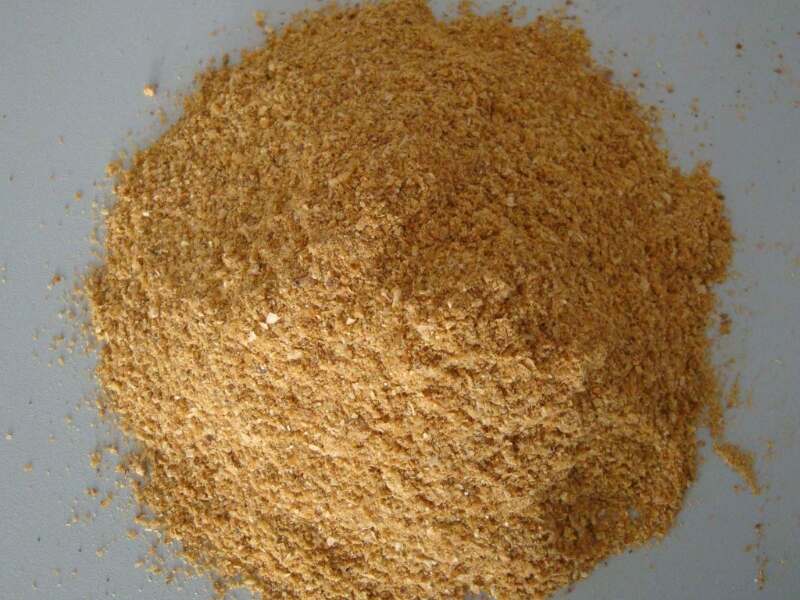
Corn gluten meal, a byproduct of the corn milling process, can be a natural pre-emergent herbicide when applied to your lawn. It releases organic peptides into the soil, which can dry out clover seeds, inhibiting their germination.
Corn gluten poses no threat to mature grass. Still, it’s crucial to hold off on its application if you’ve recently overseeded your lawn since it will prevent all seeds from sprouting, including grass seeds.
For effective results, spread corn gluten meal uniformly across the target area at a rate of 20 pounds for every 1,000 square feet.
Warning: Corn gluten meal will not affect already established clover.
7. Spot-Treat With Herbicides
Herbicides offer a direct and potent way to tackle clover growth head-on. One of the preferred choices for organic lawn enthusiasts is A.D.I.O.S. (Advanced Development In Organic Solutions). As the name suggests, it’s an organic weed killer that focuses on disrupting the growth of weeds like clover without harming the surrounding grass.
Another option is the use of post-emergent broadleaf herbicides, designed to tackle weeds that have already sprouted. They can be potent, so you want to ensure that the application is strictly limited to patches of clover, avoiding any inadvertent contact with the surrounding grass.
Note: Regardless of whether you opt for a post-emergent herbicide or a vinegar solution, remember: The smaller the clover patch, the fewer treatments you’ll need to effectively control it. Act early for best results.
8. Maintain a Clover-Free Lawn
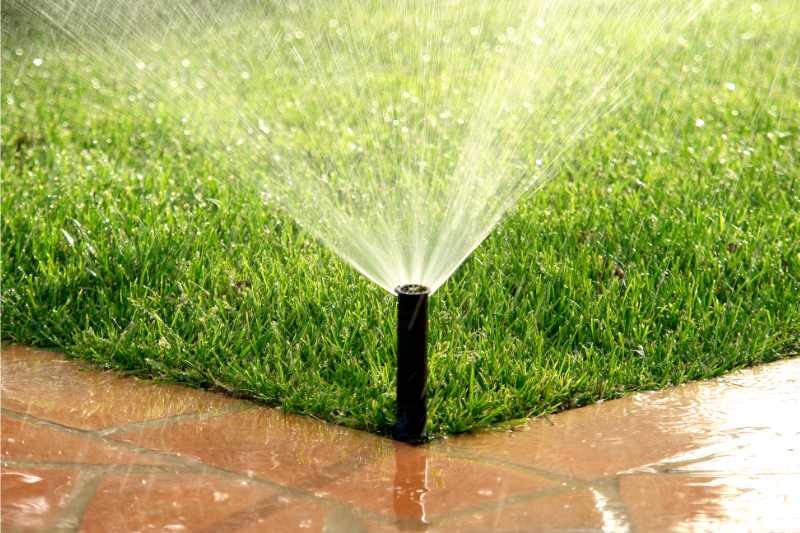
Having worked hard to rid your lawn of clover, the next essential step is ensuring it doesn’t make an unwanted comeback.
Often, clover thrives in lawns that are not adequately cared for, so here are some lawn care practices for homeowners who want to ensure a clover-free and healthy lawn:
- Water appropriately: Knowing how often to water your lawn is essential. Overwatering can create a conducive environment for weeds, while underwatering can stress the grass, making it more susceptible to weed invasion and diseases. How long to water your lawn depends on several factors, but aim to water deeply and infrequently, about 25-30 minutes per session.
- Mow at the right height: Different grass types have different mowing heights. However, if you want to avoid clover, maintain a height of about 3 inches. Taller grass shades the soil, making it less inviting for clover seeds to germinate.
- Overseed: The bare spots left behind after removing clover can be invitations for new weed growth. By overseeding these areas, you can ensure that grass and not unwanted weeds occupy these spaces.
- Fertilize regularly: A healthy, well-nourished lawn can outcompete most weeds. Remember, clover often sets roots in low-nitrogen soils, so maintaining a well-fertilized lawn can deter its growth.
- Amend acidic soil: Clover also tends to thrive in acidic soils. If a soil test reveals high acidity, consider amending your soil with limestone to balance the pH.
- Aerate compacted soil: Soil compaction can stifle grass roots and provide an opening for clover to establish itself. Regularly aerating your lawn ensures that the soil remains loose, providing room for grass roots to grow deep and strong.
What is Clover?
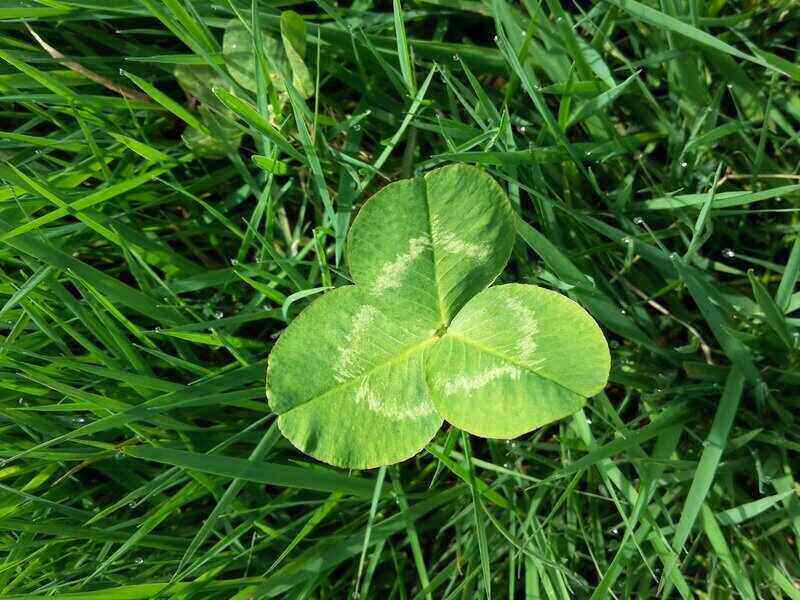
Clover is a herbaceous perennial weed that has been a familiar sight in gardens and lawns for centuries. It typically boasts three green leaflets that might sometimes be accompanied by a white or pinkish hue when it flowers. The most common type of clover is white clover (Trifolium repens).
In recent times, clover lawns have been on the rise as an eco-friendly alternative. Advocates highlight its low maintenance needs, resilience in various soil types, and the ability to fix nitrogen, which can benefit the surrounding plants.
However, many homeowners still have reservations about its presence on their lawns. The distinct look of clover can disrupt the uniform green expanse of a manicured lawn, making it appear less “tidy” to some. Moreover, clover competes with grass for nutrients, space, and light.
FAQ About Clover Control
What’s Causing Clover in My Lawn?
Clover infestation in lawns can be attributed to a variety of factors. Here’s a breakdown of the primary reasons why clover might find your lawn inviting:
- Low nitrogen levels: One of the main reasons for clover’s presence is low nitrogen levels in the soil. Clover has the ability to produce its own nitrogen. So, when the soil is deficient in nitrogen, clover can thrive while other plants might struggle.
- Compacted soil: Compacted soil can hinder the growth of grass roots, making it difficult for grass to access nutrients and water effectively. Clover, on the other hand, can manage better in such conditions, giving it an advantage over your lawn.
- Unbalanced soil pH: If your lawn’s soil is acidic, it might create a more conducive environment for clover to grow.
- Mowing too low: Cutting your grass too short can expose the soil, creating gaps for clover seeds to germinate. Keeping grass at a height of around 3 inches can prevent this exposure and reduce clover’s chances.
- Inconsistent watering: Like all plants, clover responds to its environment. Watering your lawn too much or too little can stress the grass, making it more susceptible to weed invasion. Finding a balanced watering routine is crucial to keep both clover and other lawn weeds at bay.
Is White Clover Bad for My Lawn?
Contrary to popular belief, white clover is not bad for your lawn. In fact, clover offers several benefits that can enhance lawn health and functionality:
- Clover can naturally enrich the soil with nitrogen, reducing the need for synthetic fertilizers and promoting grass growth.
- Clover reduces lawn’s susceptibility to common lawn diseases.
- Clover flowers are a magnet for pollinators. Incorporating clover into your lawn can create a more biodiverse environment, attracting bees and beneficial insects.
- The robust root system of clover can help in preventing soil erosion, especially in areas that might be prone to runoff or on slopes.
However, the presence of clover can disrupt the uniform look of a manicured lawn. Its distinct appearance might stand out, especially when it’s flowering, and some people might find this contrast unaesthetic.
What is the Best Killer for White Clover?
Herbicides designed for broadleaf weeds are generally the best weed killers for white clover. For optimal results, it’s recommended to choose herbicides containing active ingredients such as dicamba, clopyralid, fluroxypyr, and quinclorac, like Trimec Classic.
When to Call a Pro
Maintaining a clover-free, green lawn goes beyond just periodic interventions for weed control. The essence of a thriving lawn lies in consistent, informed, and tailored lawn care practices.
If you’re unsure about the best practices or need assistance in implementing them, consider reaching out to the professionals. They can provide invaluable insights and hands-on help, ensuring your lawn remains the envy of the neighborhood.
Main Photo Credit: Sheryl Watson / Canva Pro / License
LawnStarter participates in the Amazon Services LLC Associates Program and other retailer affiliate programs. LawnStarter may earn revenue from products promoted in this article.